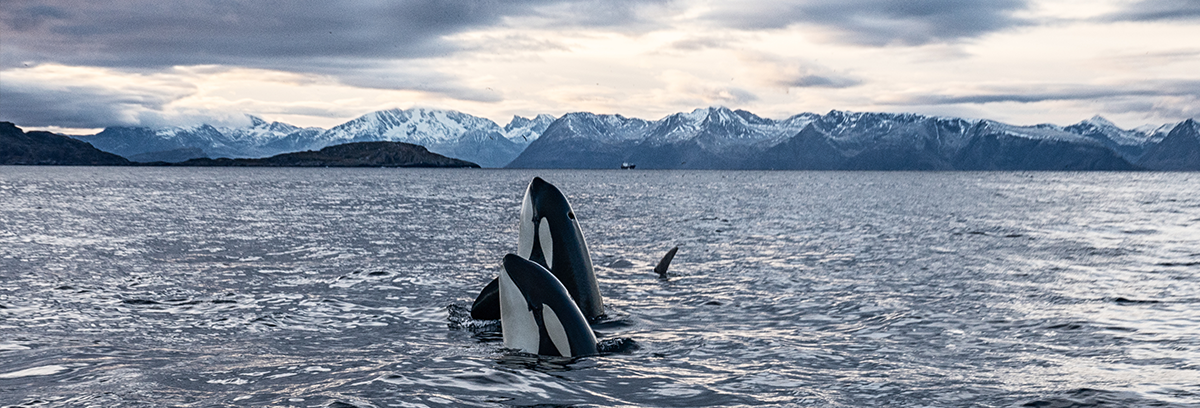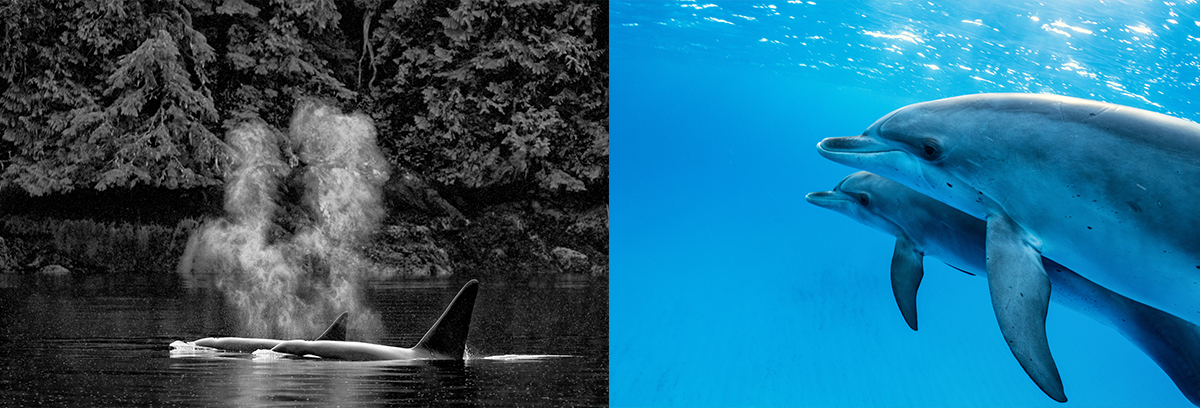Carmel Road Wines and SeaLegacy - A Partnership for the Oceans
Carmel Road has teamed up with the passionate ocean protectors at SeaLegacy. Why? Because the ocean is our lifeblood. It creates the cool misty climate of Monterey that our vineyards thrive in.
Sealegacy
Guided by science and driven by purpose, SeaLegacy is dedicated to saving the ocean through science-backed solutions and the transformative power of storytelling. Their small-but-mighty team is helmed by world-leading filmmakers and photographers, including National Geographic's Paul Nicklen, Cristina Mittermeier, and Andy Mann. Together with their network of expert scientists, advisors, and dedicated partners, SeaLegacy has garnered the support of millions across the globe for the protection of our ocean. Their nearly ten-year track record at the forefront of conservation and media is backed by countless successful initiatives, including the expansion of marine protected areas, wildlife protections, and key ocean policies.
Along the West Coast, many of our ocean’s great whales face a perilous migratory journey. Ship strikes, pollution, and entanglement pose a growing threat to species such as gray whales and humpbacks. Over the last decade, SeaLegacy has collaborated with key organizations from Monterey Bay to Mexico’s western coasts to educate the public, support blue economies, and create safe passage for whales and their calves.
FIND OUT MORE ABOUT SEALEGACY’S MISSION TO RESTORE THE HEALTH OF OUR OCEAN.
IN CELEBRATION OF WORLD OCEAN MONTH, ENTER TO WIN A TRIP TO MONTEREY!
SEALEGACY - STORIES, SOLUTIONS, SCIENCE
Guided by science and driven by purpose, SeaLegacy is dedicated to saving the ocean through science-backed solutions and the transformative power of storytelling. Our small-but-mighty team is helmed by world-leading filmmakers and photographers, including National Geographic's Paul Nicklen, Cristina Mittermeier, and Andy Mann. Together with our network of expert scientists, advisors, and dedicated partners, SeaLegacy has garnered the support of millions across the globe for the protection of our ocean. Our nearly ten-year track record at the forefront of conservation and media is backed by countless successful initiatives, including the expansion of marine protected areas, wildlife protections, and key ocean policies.
Formerly founded along the shores of Vancouver, SeaLegacy’s commitment to protecting marine wildlife along the Pacific coast remains close to our hearts. Together with our supporters we have chartered a path to stronger protections within coastal and federal waters, safeguarding vital species and securing conservation wins for our ocean.
CONSERVATION WIN
For decades the use of large-mesh driftnets ensnared and endangered vulnerable marine wildlife off the West Coast. Intended mostly for swordfish, threshers, and tuna, the nets indiscriminately targeted all ocean fauna – including endangered sea turtles, porpoises, and even whales. SeaLegacy was proud to support a five-year effort to raise public awareness and secure the necessary government backing to ban the use of driftnets in state and federal waters.
Our storytellers were dispatched to investigate the nets alongside our partners and brought the footage to the attention of millions. Together with Sharkwater, Mercy for Animals, and Turtle Island Restoration Network, our team generated public outcry through targeted social media campaigns and prominent media outlets, including the Washington Post and National Geographic. Following in the wake of our coordinate campaign, the use of large-mesh driftnets were banned in California state waters. By 2023, under the Driftnet Modernization and Bycatch Reduction Act, the nets are now being phased out of federal waters – a victory for our ocean and its most vulnerable species.

PROTECTING KEYSTONE SPECIES
Salmon serve an imperative role as a keystone species for many ecosystems spanning well beyond the ocean's depths. The depletion of wild salmon populations undermines the health of both marine and freshwater habitats, especially within coastal forests. Pollution from runoff, mining, coastal development, and disease spread from open net pen salmon farms threaten the future of wild salmon and our ocean’s health. From Alaska’s fragile watersheds to the temperate rainforests of the Pacific Northwest, SeaLegacy has worked closely with local organizations and government officials to protect native salmon species.
In 2019, SeaLegacy joined the decades-long effort to stop a proposed copper mine in Bristol Bay, Alaska. A 2014 survey found the mine would have detrimental consequences for the area’s watershed and potentially decimate local wild salmon populations. Our team raced to document and amplify the story, coordinating with on-the-ground partners, scientists, and even celebrity musicians to garner public support for salmon and call for an end to the mine. By November 2020, the U.S. Army Corps of Engineers denied permits for the mine, citing environmental concerns. The campaign waged on until finally, as of January 31, 2023, the proposed mine was officially vetoed by the EPA in order to preserve the watershed. Today, we remain steadfast in our mission to educate the public on the importance of salmon and are proud to support this powerful initiative.
ONGOING EFFORTS TO PROTECT WEST COAST WHALES
Along the West Coast, many of our ocean’s great whales face a perilous migratory journey. Ship strikes, pollution, and entanglement pose a growing threat to species such as gray whales and humpbacks. Over the last decade, SeaLegacy has collaborated with key organizations from Monterey Bay to Mexico’s western coasts to educate the public, support blue economies, and create safe passage for whales and their calves.
Our most recent work involves partnering with organizations to reform the shipping industry, expand marine protected areas, and raise public awareness about the importance and challenges faced by migrating whales. Through their excrement, whales disperse nutrients across the water column and support microorganisms like phytoplankton, which in turn feed animals like krill – a staple for many whale species. Thanks to this process, colloquially referred to as the “poop loop” by scientists, whales support the ocean’s capacity to generate oxygen, a byproduct of phytoplankton, and help maintain marine biodiversity.
In 2023, SeaLegacy collaborated with Whale Guardians to support programs reducing ship strikes and highlighting the invaluable role of whales, bringing the story to millions and even making it to media giants like CNN. Additionally, our work with local fishers supported endangered gray whales through ethical ecotourism, contributing to blue economies that support conservation. As of today, we remain committed to expanding marine protections for migrating whales through the creation of marine protected areas, including a new biosphere reserve in Baja California Sur’s waters.


